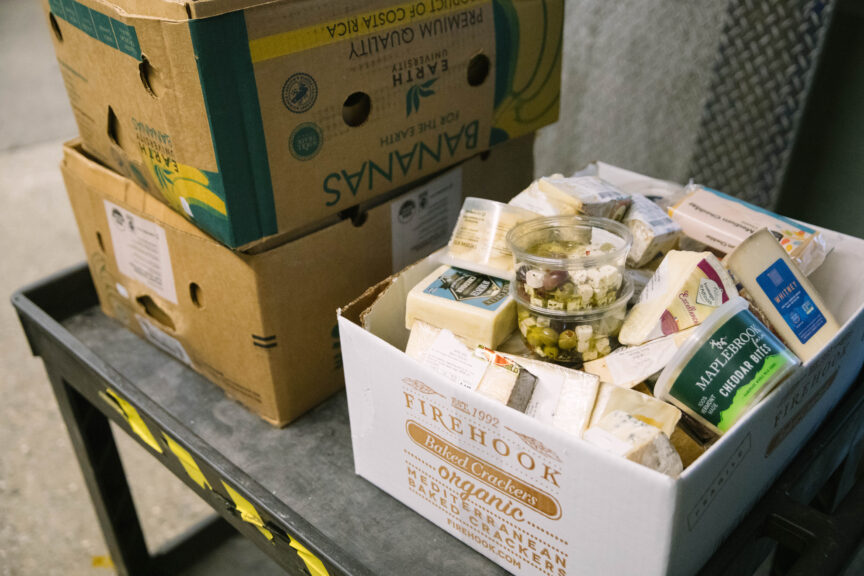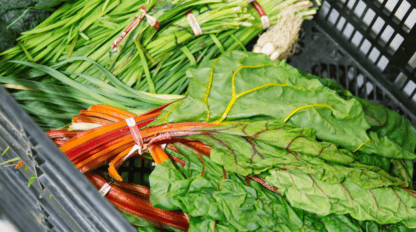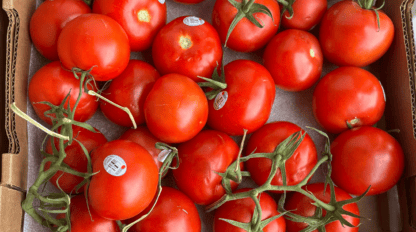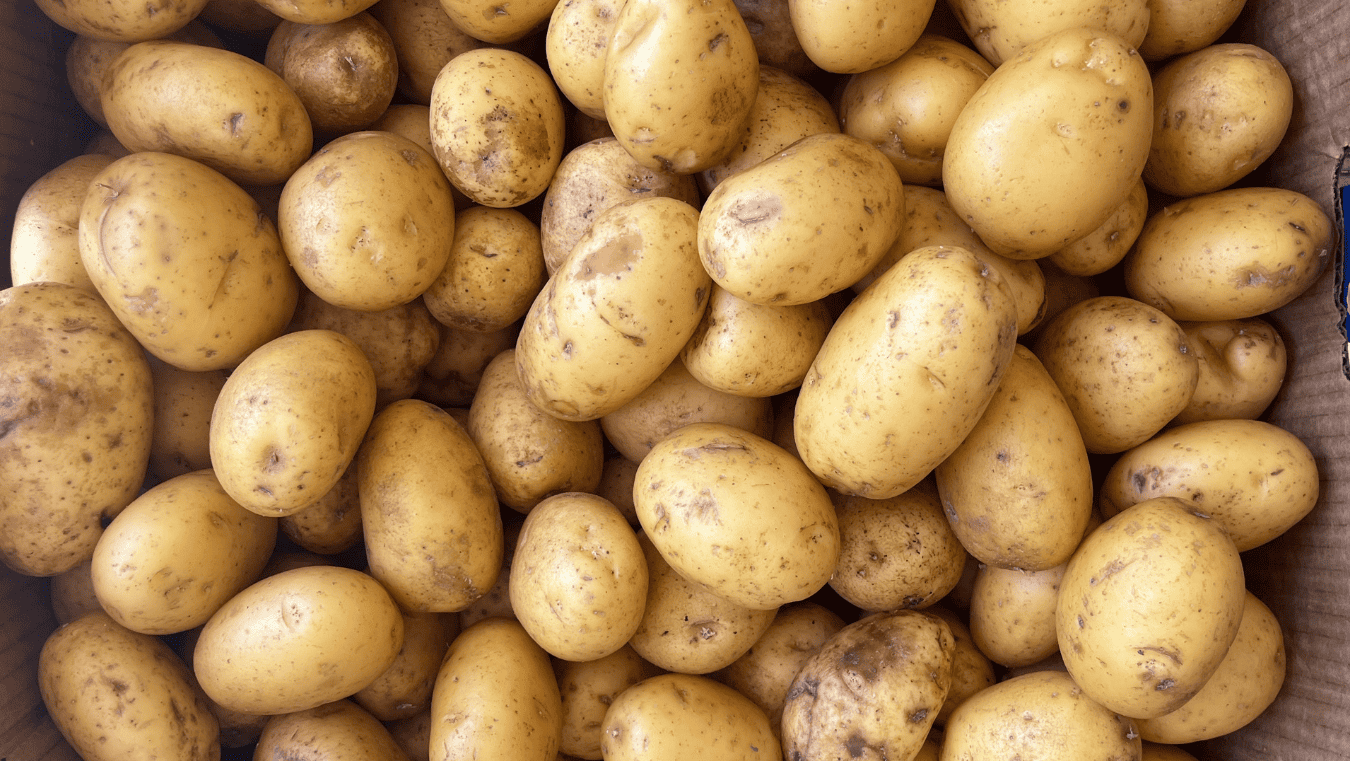Food retailers and brands: Why partner with Spoonfuls.

Did you know consumer-facing businesses are responsible for 20% of wasted food in the United States (that’s 18 million tons) each year? And much of that food is discarded though it’s still good to eat.
That’s where Spoonfuls comes in. Read about why brands, retailers, farms, and wholesalers partner with us on food recovery:
Addressing the climate emergency while feeding neighbors
Many of the retailers and brands we work with already have waste reduction plans in place designed to make their operations more environmentally friendly. Spoonfuls plays a part by picking up their still-good, excess food and ensuring it goes somewhere it can be eaten by people, rather than landfilled (or otherwise discarded in a way that doesn’t see it consumed, like composting or anaerobic digestion). Check out the community organizations serving people facing food insecurity that receive rescued food from Spoonfuls.
“Through regular pick-ups at four of our Massachusetts locations, we kept a collective 350,000+ pounds of unsold food out of landfills in 2023 thanks to our partnership with Spoonfuls. That’s enough food for nearly 300,000 meals for our neighbors in need.” – Stephanie Zampi, New England Division Sustainability Coordinator, Wegmans

Financial savings
Working with Spoonfuls offers retail partners:
- Lower Waste Disposal Costs: With our services offered at no cost to the food retailers and brands we work with, food retailers save on traditional waste disposal. By putting aside what may have gone to waste, but is still good to eat, for Spoonfuls to pick up, businesses are putting less in their compost, recycling, and trash bins and paying for fewer waste hauls.
- Enhanced Food Donation Tax Deduction: By donating excess food to Spoonfuls, a 501(c)(3) nonprofit organization, retail food donors are eligible for a tax deduction.
A resource to help retailers waste less food
Spoonfuls’ staff works to help the food retailers in our network to maximize donations through one-on-one training and reference sheets about which foods, including some that are past date, we and our partners can use.
“I was working with a store whose staff hadn’t realized they could donate whole, unpackaged fruits and vegetables — foods our community partners frequently ask for. Teaming up with our Food Acquisition Manager, Chris Ramos-Hernandez, we worked with their store manager to build understanding and provide training resources to his staff around the produce donations we accept. After a few months of training their total food donations increased by 230%!” – Stephen Loverde, Food Recovery Coordinator, Spoonfuls
High employee satisfaction
Retailers report high employee satisfaction with our partnership. Staff appreciate being involved in their employer’s efforts to waste less and help feed people in need in their communities. They also appreciate Spoonfuls’ consistency and communication, made possible by our team of professional, full-time Food Recovery staff.

Commitment to food safety
Every member of our frontline staff is ServSafe-certified. (They’re trained to safely handle, store, and transport food.) They work to ensure the food we pick up meets food safety and quality standards – which is important to our retail partners, too.
Food recovery as a way to comply with the Massachusetts Organics Waste Ban
Spoonfuls’ services help retailers comply with the Massachusetts Commerical Organics Waste Ban, which requires businesses that generate a certain amount of food waste each week to divert it from landfills where possible. One way to do that is by partnering with a food recovery organization like Spoonfuls!
Long-standing partnerships
We’re a trusted partner in food recovery. We pick up weekly from 25+ brands and retailers across 90+ locations, from supermarkets like Trader Joe’s and Big Y to local farms like Volante Farms and Red Fire Farms to wholesalers like Baldor.
“Spoonfuls has been an outstanding organization to collaborate with through our Grocery Rescue program and Nourishing Our Neighborhoods. It is great to be a part of their effort to reduce food waste and support members of the community affected by food insecurity. Their dedication to not only reducing food waste but striving for long-term solutions is inspiring.” – Jonny Rose, Senior Specialist, Community Giving & Engagement, Whole Foods Market
Liability Protections
Liability protections under the 1996 Bill Emerson Good Samaritan Food Donation Act, expanded and clarified by the Food Donation Improvement Act in 2023, provide legal protection to people and businesses donating or distributing donated food to people experiencing food insecurity. While this federal legislation typically protects good-faith food donations, many partners take extra comfort in donating food through Spoonfuls because of our commitment to food safety and quality.


